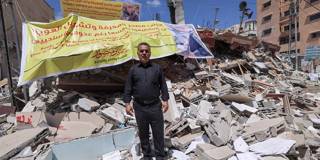
A Financial New Deal for Palestine
The COVID-19 economic shock and the recent conflict with Israel highlight the importance of boosting the Palestinian economy. For starters, the International Monetary Fund should acknowledge Palestine’s fiscal progress over the past quarter-century, and offer it a financial New Deal with upgraded status.

JERUSALEM – With the cease-fire ending the latest Israeli-Palestinian confrontations in Gaza and the West Bank, the question now is how to secure a credible path toward peace. To have any hope of success, Palestine’s economy will need to be strengthened, and concerned international parties will have to stay engaged. Fortunately, Palestinian economic management has achieved much more than the world has acknowledged, and is up to the task of reconstruction and development needed today.